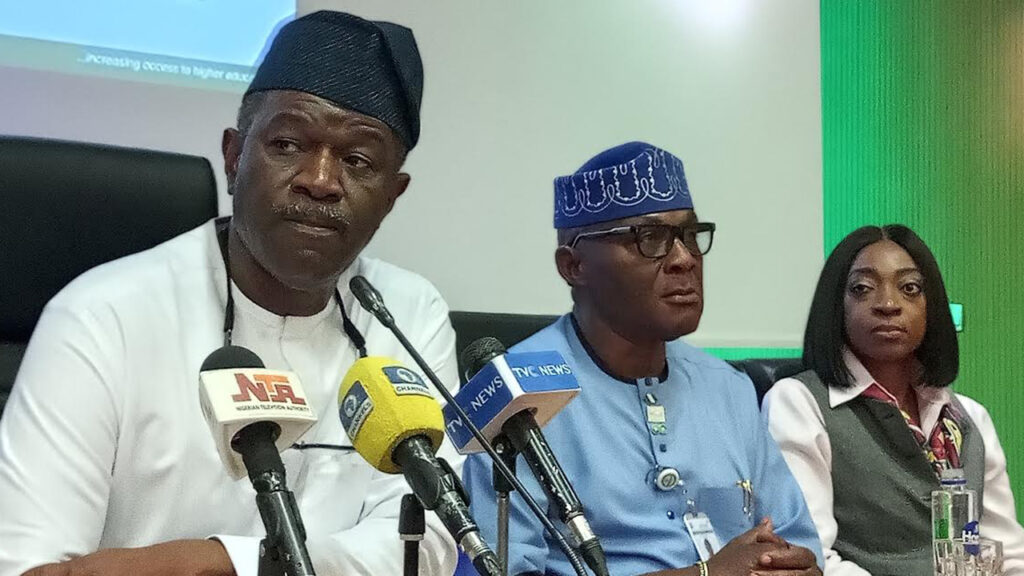The Nigeria Education Loan Fund (NELFUND) has reached a remarkable milestone—disbursing ₦73.1 billion to 366,247 tertiary students as of June 28, 2025. This achievement not only underscores the agency’s growing capacity but also reaffirms its mission to break financial barriers in accessing higher education across Nigeria.
Since launching its digital-first Student Loan Application System (SLAS) in mid-2024, NELFUND has steadily advanced its outreach and efficiency. A major leap occurred in late May, when ₦57 billion was disbursed to nearly 300,000 beneficiaries—a foundation that propelled the fund closer to the ₦73.1 billion mark, now supporting over 366,000 students nationwide.
A shift from analogue to agile
Prior to June 2025, the application and verification process involved manual paperwork across Nigeria’s 200+ tertiary institutions. This system often delays disbursements and leads to miscommunication. The fully digital SLAS, now mandatory for all accredited institutions, marks a decisive shift. Universities upload verified student data directly to the portal, drastically reducing processing delays and errors—an advancement praised by educators and student leaders alike.
While some institutional IT departments are still adapting, the consensus from student unions is clear: digital verification is easing financial stress and ensuring timelier support for students. Union presidents, such as those at the University of Ilorin and the University of Ibadan, highlighted that on-time upkeep allowances enhance academic focus and reduce the need for part-time work.

Behind the NELFUND ₦73.1 billion: Tuition & upkeep explained
The ₦73.1 billion distribution—comprising both tuition and upkeep—follows a tried-and-tested model. Tuition payments are forwarded directly to educational institutions, while monthly upkeep allowances are transferred into students’ bank accounts. When the fund released ₦59.8 billion by early June 2025, the split was roughly even—₦30.2 billion for school fees and ₦29.6 billion for upkeep.
This structure eases families’ immediate burdens and grants students the financial stability they need for uninterrupted study, material purchases, and basic living costs.
Voices on the ground
Anecdotes from students echo the positive impact of the SLAS system. A third-year student at the University of Ibadan described waiting nearly two months on outdated processes, now eased by quicker releases via SLAS. A public health student in Bauchi shared how the upkeep allowance arrived “like water in a desert,” significantly easing daily pressures and reinforcing commitment to her studies.
Student unions report that reliable monthly support helps maintain focus, improves mental health, and reduces the temptation to juggle menial jobs or side hustles during peak academic periods.
Checks, balances and transparency
Despite these advances, scrutiny remains. In early May 2025, the Independent Corrupt Practices and Other Related Offences Commission (ICPC) launched an investigation after media reports flagged an unaccounted ₦71.2 billion in allocations—around ₦100 billion had been released federally, but only ₦28.8 billion reached students initially.
The ICPC probe revealed that ₦203.8 billion had been allocated to NELFUND up to March 2024. However, ₦44.2 billion was identified as having reached 299 tertiary institutions and nearly 300,000 students—indications that the untraced funds predated NELFUND’s official activities and were tied to legacy schemes.
NELFUND leaders clarified that discrepancies stemmed from earlier initiatives superseded by the new Fund. They reaffirmed that every naira is being tracked and credited to beneficiaries or academic institutions, and highlighted improvements in internal auditing and real-time dashboard monitoring.
Moving forward: scale, impact, accountability
NELFUND’s year-long journey has seen over 600,000 registrations and more than 550,000 processed applications. With ₦73.1 billion reaching 366,247 students, momentum is undeniable—and growing. As more institutions complete SLAS adoption and broader stakeholder collaboration deepens, the Fund is poised to touch more lives.
Yet expansion comes with greater accountability. To sustain confidence, NELFUND is intensifying transparency—issuing legal notices to institutions that fail to share fund status with students, implementing quarterly public audits, and educating borrowers about repayment terms. Loans offer generous grace periods, and repayment is income-contingent, designed to make contributions manageable for graduates, aligning with best practices in student finance.

Why it matters
For Nigeria’s future workforce, access to education is a critical stepping-stone. With many students faced with stark choices between schooling and survival, a reliable student loan ecosystem is essential. NELFUND’s ₦73.1 billion disbursement isn’t just a number—it represents families lifted, dreams sustained, and potential unlocked.
By combining digital innovation (SLAS), transparent governance, and measurable outcomes, NELFUND is reshaping tertiary education financing—making it fairer, accessible, and oriented toward producing a more skilled Nigeria.
Looking ahead
Building on this success plateau, NELFUND’s next steps include expanding coverage to vocational and technical institutes, enhancing mobile-app notifications for students on payment status, and rolling out integrated repayment solutions with the Federal Inland Revenue Service.
With ₦73.1 billion already in circulation and nearly 370,000 lives touched before the start of the next academic year, the Fund is well-positioned to fulfil its founding promise: that no Nigerian student should be denied education because of lack of funds.
But fulfilling that vision requires constant vigilance. If NELFUND sustains digital efficiency, strengthens institution-level compliance, and maintains robust financial oversight, optimistic observers say it could become a model across Africa.
Join Our Social Media Channels:
WhatsApp: NaijaEyes
Facebook: NaijaEyes
Twitter: NaijaEyes
Instagram: NaijaEyes
TikTok: NaijaEyes
READ THE LATEST EDUCATION NEWS








































